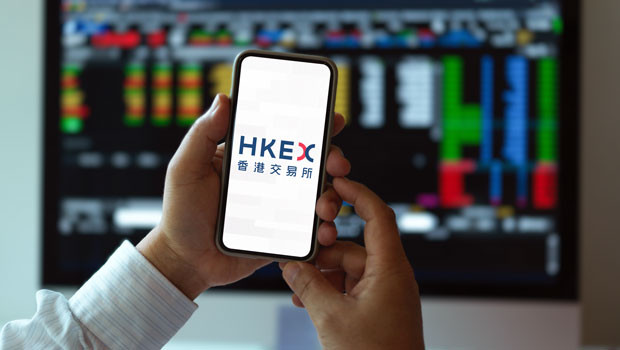Asia report: Hong Kong surges, other markets sink on mixed day

Markets in the Asia-Pacific region presented a mixed performance on Wednesday, with Hong Kong's Hang Seng Index surging while other key indices faced declines.
Geopolitical tensions were also in focus, after Iran fired a barrage of missiles at Israel overnight.
“As worries about the potential for a bigger conflict continued, Iran launched about 180 ballistic missiles and declared that, barring further provocation, its attack is done,” said TickMill’s Patrick Munnelly.
“But Israel has promised a reaction and is fully supported by the US.
“Gold was trading close to an all-time high, crude oil prices were still rising, and demand was high for safe-haven assets like Treasury bonds and the US dollar.”
Munnelly noted that some markets - especially in Hong Kong - were prepared to ignore the dangers, as the Hang Seng index jumped on the back of market enthusiasm for China's stimulus announcements.
“Given the extensive list of measures included in China's stimulus plan, it is not a surprise that markets have remained robust even with geopolitical uncertainty rising rapidly.
“However, this push for liquidity still seems too narrowly orientated, depending on greater capital for state-owned banks, swap facilities, softer lending criteria, and lower interest rates.
“It remains to be seen how successful that is in an already heavily indebted economy.”
Hong Kong surges, rest of region in the red
The standout rally in Hong Kong came as optimism surrounding Beijing's latest stimulus policies lifted the market, leading the Hang Seng Index to rise by 6.2%, hitting a 22-month high of 22,443.73.
Real estate developer Longfor Properties saw the largest gain, soaring 24.73%, followed by strong performances from biotech firms WuXi AppTec and WuXi Biologics, up 17.49% and 15.14%, respectively.
Japan’s Nikkei 225 dropped by 2.18%, closing at 37,808.76, as major technology stocks faced sharp losses.
TDK Corporation and Advantest fell 5.13% and 4.85%, respectively, while Isetan Mitsukoshi dropped 4.95%.
The broader Topix index also fell by 1.44%.
South Korea's Kospi 100 index saw a 1.2% decline to 2,564.52, with significant losses in key sectors.
Hanon Systems plummeted 9.17%, Kogas dropped 7.73%, and Amorepacific fell 7.04%.
Meanwhile, Australia’s S&P/ASX 200 edged lower by 0.13% to 8,198.20, with miners and energy stocks underperforming.
Vault Minerals lost 4.48%, and Meridian Energy and ZIP Co saw declines of over 3%.
New Zealand’s S&P/NZX 50 also dipped, by 0.12% to 12,451.69, with KMD Brands and Synlait Milk leading the losses, falling 5.66% and 4.88%, respectively.
Markets in mainland China remained closed on Wednesday for the National Day holiday.
In currency markets, the dollar was last 0.49% stronger on the yen, trading at JPY 144.27.
It weakened slightly against its antipodean counterparts, however, falling 0.17% against the Aussie to AUD 1.4504, and retreating 0.03% from the Kiwi to change hands at NZD 1.5916.
Oil prices surged, with Brent crude futures last up 2.64% on ICE at $75.50 per barrel, and the NYMEX quote for West Texas Intermediate rising 2.85% to $71.82.
Korean inflation comes in below expectations, new Japan PM takes office
In economic news, South Korea's consumer price index rose 1.6% in September compared to a year earlier, according to fresh data released on Wednesday.
That figure came in below economists' expectations, who had forecast a 1.9% increase.
On a monthly basis, inflation edged up by just 0.1%, slowing from the 0.4% rise in August and falling short of the 0.3% expected by analysts.
In a separate report from S&P Global, South Korea's manufacturing sector experienced its steepest contraction in 15 months.
The purchasing managers' index (PMI) for manufacturers fell to 48.3 in September, down from 51.9 in August, signalling a slowdown in activity.
Weaker overseas demand, which declined for the first time this year, was a key factor behind the contraction.
In Japan, Shigeru Ishiba officially took office as the new prime minister on Wednesday, succeeding Fumio Kishida, who formally resigned earlier in the day.
Analysts suggested that Ishiba’s leadership could give the Bank of Japan more flexibility to raise interest rates.
However, newly-appointed economy minister Ryosei Akazawa said on Wednesday that Ishiba expected the central bank to carefully assess the economy before moving forward with any rate hikes.
According to Reuters, Akazawa emphasised that Japan's priority remained exiting deflation, a process that could take time.
While Ishiba previously advocated for monetary policy adjustments, Akazawa noted that the comments were made with specific conditions in mind.
Reporting by Josh White for Sharecast.com.